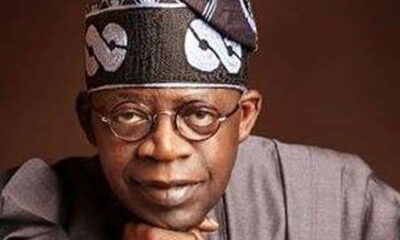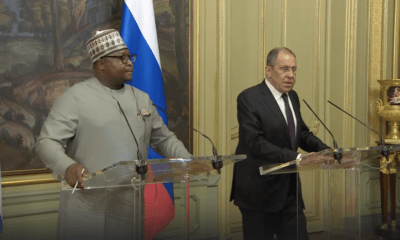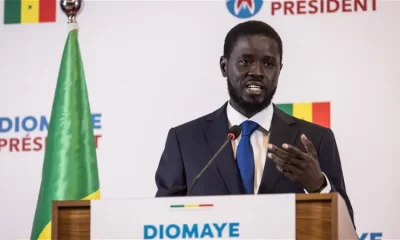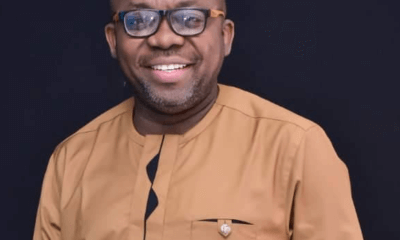Political Issues
Arresting rising Political Tension in Ebonyi -By Nwachukwu Agwu Ani
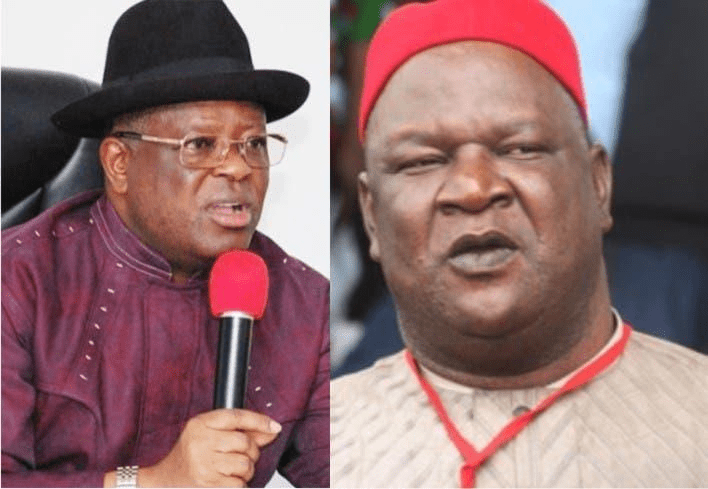
In every polity, the product of uncontrolled political tension is anarchy or instability, at best. In 2003, moneybags in Anambra State compelled a governorship candidate to sign ahead of time a letter of resignation in case he, on winning the election, fails to adhere to a number of mutually agreed terms bordering on sharing the patrimony of the state. The terms were breathtakingly stringent that to implement it, governance would suffice as the opportunity cost. The candidate, now a ranking member of the ruling party (APC), was taken to Okija Shrine to consummate the agreement and seal it with an oath.
Eventually, when as governor, he reneged on the agreement, he was kidnapped and the letter of resignation, earlier signed, tendered in the House of Assembly to support his replacement. In the events, there was tension, followed by agonizing political battles and dirty squabbles. Of course, governance suffered. This story (abridged here) is illustrative of how primitive politics can impose anarchy or destabilize an administration. When this happens, the consequences are usually far-reaching and pervasive. One consistent or persistent consequence is misgovernance. Obviously, this arises from the diversion of governments’ spending and energy to gaining advantages over perceived and real enemies. For this, governance breaks down. Proverbially, as Africans say, when two elephants fight, it is the grass that suffers.

Nwachukwu Agwu Ani
Following the defection of Ebonyi State governor – Engr David Nweze Umahi – to the ruling party (APC) and his recent outbursts that some stalwarts of the PDP (former political allies) are plotting to destabilize his government using IPOB and cultists is an allegation that shouldn’t be treated with kids gloves. In the outbursts, the governor was detailed and clear enough as he mentioned big names behind the said plot. Accordingly, Gov Umahi met with security agencies in the state with a charge to scuttle and foil the plots from materialising. Is that the governor being proactive to achieve deterrence? I think otherwise.
There is an elephant in the room. The governor’s outbursts have triggered firm rebuttals or rejoinders from accused persons such as Dr Sam Egwu and Senator Anyim Pius Anyim. Dr Egwu (a former governor of the state) has distanced himself from the allegations and called for a full investigation. In a similar vein, Senator Anyim, a former President of the Senate and former Secretary to the Government of the Federation (SGF), has decided to dive into the murky waters of politics (which he is well informed about) with the governor.
In his well-circulated response, Senator Anyim troubled the polity with a sensitive paragraph that reads “Gov. Umahi is pitiably delusional. He is a prisoner of his greed and inordinate ambition. Here is a drowning man looking for who to drag down with him.” Senator Anyim also claimed that Gov. Umahi organised a “ritual dinner” in 2019 and wondered “how many Ebonyians that have died mysteriously after the dinner”. In every estimation, these are not weightless allegations. And as a public servant, Gov Umahi must clear the air.
As I type this piece in my cubicle, the political atmosphere in Ebonyi is turbocharged and could explode. For instance, all appointees of Umahi’s government in Ohaukwu and Ivo Local Government Areas where Dr Egwu and Senator Anyim hail from respectively have been relieved of their appointments. Although the Secretary to the State Government (SSG) has given reason(s) for the dismissals, the prevailing logic/reasoning is: dilution of the influence of Dr Egwu and Senator Anyim. Whatever the true position is, what is undeniable is the charged and ready-to-explode political atmosphere in Ebonyi. This must not happen!
In May this year, Ebonyi State was graded/labelled as a major breeding site for poverty and destitution in Nigeria. Herein is the source of my worry or anxiousness: the strong correlation between poverty and armed conflict or violence. The report, produced/authored by the Nigerian Bureau of Statistics (NBS), was simply damning. In the report: Poverty and Inequality in Nigeria, Ebonyi was the 4th poorest state in the federation and the poorest (number one) in the southern parts of the country. What does this mean for political instability?
It is my candid and considered opinion that the precarious state of Ebonyi and Ebonyians in national poverty ratings must not deteriorate any further. However, this deterioration is inevitable if the tension in the state is allowed to suppurate and fester. Most obviously, we know that political (armed) conflicts kill and injure people in all economies (developing and developed) but the unintended (indirect) consequences kill even more people. In a typical scenario of politically-induced conflict, mass flight dislocates people into unfamiliar places or villages where they lack natural immunity and adaptation strategies to survive. As a result, much of the dying (deaths) occur after a conflict is declared over.
For instance, during the 2006/2007 Onicha Crisis in Ebonyi which claimed many lives and properties valued at billions of Naira, the people that fled to neighbouring communities for safety came back with undiagnosed diseases and mysterious deaths persisted even after years of post-conflict integration. People (locals) lost their livelihood assets and there was a sudden spike in unwanted pregnancies among unmarried young girls. And most importantly, because illegal arms exchanged hands to non-state actors, Onicha suffers the residue or impact of alien cultures – cultism, sodomy and all manners of deviant behaviours that ceaselessly threaten law and order, till this very day. What does instability achieve?
To estimate the economic costs of instability, I will turn to a seminal book – Wars, Guns, and Votes: Democracy in Dangerous Places – by an Oxford-based political economist, Sir Paul Collier. Professor Collier estimates that for a typical civil war in a developing country, the economic costs alone are the equivalent of losing around 2 years of income, or some $20 billion. To be honest, the $20 billion estimates may not apply to Ebonyi without alterations but we have to agree that in the event of political instability, it will devastate and hound Ebonyi and its “baby” economy for years, even decades.
Although the possibility of instability exists, with uncontrolled political tension, that route must be dreaded by all actors and stakeholders. The fact that people are gravely affected by internal conflicts and tend disproportionately to be among the poorest and most disadvantaged people in society imposes a necessity for politicians to sheath their swords. Political war will not only degrade the progress the state has recorded in the recent past; it would return Ebonyi to the horrible state of yesteryears, where being an Ebonyian was equated to pity, indignity and lack of opportunities. We cannot afford it!
As I conclude, let me quickly mention two things that heighten my anxiousness: Governor Umahi’s Koboko Policy and Senator Anyim’s political past. Gov Umahi did use his koboko to ban journalists from entering the Government House for life. This authoritarian expression attracted national and international condemnation before he retraced his steps but then, substantial reputational damage had been incurred. Also, there were online reports that the state government enabled its taskforce to use unorthodox means (like the use of matchets and clubs) to stop #EndSars protesters at the peak of nationwide demonstrations against police brutalities in October this year. This unconventional medium didn’t solve the problems. Rather, public buildings were reportedly touched and avoidable deaths rumoured.
On the other hand, Ebonyians have not forgotten Senator Anyim’s protracted political wars with Dr Sam Egwu and Chief Nwancho Elechi (both are formers governors of Ebonyi). Furthermore, Hon Chudi Offodile – a former member of the House of Representative and an accomplished Abuja-based lawyer argues that Senator Anyim’s political past exposes “a consistent pattern of adversarial politics”. Hon Chude’s controversial assertion is contained on page 184 of his 2016 bestseller – The Politics of Biafra and the Future of Nigeria. What implication does this analysis hold in the context of ongoing verbal wars in the state?
Conclusions cannot be easily reached but possible implications are glaring. Therefore, I am compelled to write that the grave allegations and counter-allegations in Ebonyi politics should be suspended forthwith or toned down, at least. Gov Umahi and Senator Anyim are mainstream politicians, “strongmen”, ably endowed with the war chest to vigorously prosecute political fights to any length. They have thousands of supporters, some in the class of petty-bourgeois and the other majority within the ranks of the poor and vulnerable. But at this material time, the relationships, ego, enviable attainments and political legacies of these political heavyweights must be carefully managed for the interest of tranquillity.
Back to where we started, the 2003 political episode in Anambra State enjoys strong abhorrence among Anambrarians regardless of political affiliations but it remains one incident that their unborn children would live to explain to their contemporaries. Ebonyi cannot afford such a history. What Ebonyians, official and unofficial actors, must prioritise is: poverty reduction or creation of opportunities for shared prosperity. This we must do with a sense of urgency.
Written by Ani, Nwachukwu Agwu
Ani is a doctoral candidate at the Institute for Development Studies, University of Nigeria. He holds strong interest in governance and public policy and contributes periodically to public debates.

